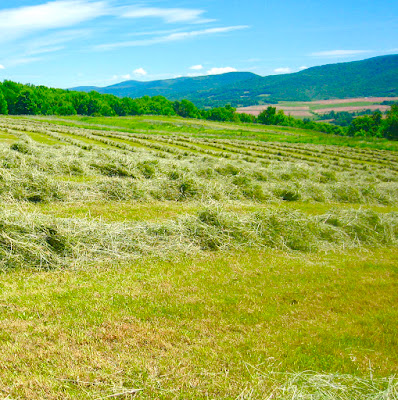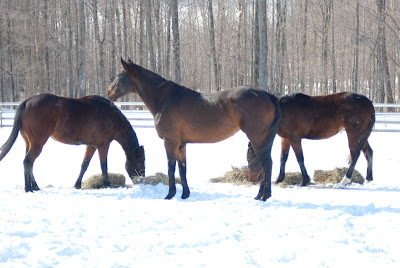Variety is the spice of life, and for horse people it is no different. Many of us wear multiple hats including the riding helmet, and are happy to put our creative talents to use in avenues other than the horse training one. And as most of you are aware, for me, one of these is writing. March marked a very special 'red letter' day for me, your current Editor at Catskill Horse, as my first work of fiction "The Dutchess of Chadwick" was published. It is available only in print. And you can find it here if you'd like to purchase an authentically signed copy. But hurry, because the First Edition is limited.
My book is a work of literary historical romance written in the traditional style. And it offers a nostalgic look at life in the Gilded Age, a book genre that has sadly seen a massive decline in recent years, mostly due to the 'woke' movement and the big publishers reluctance to promote romance per se.
While popular Gen Z culture continues to expand its love of 'old money' fashion styles and the romantic nature of the attire in a truly nostalgic escape from the present day trials, the publishing world has taken a giant step away from providing the women's fiction market with books that cover romantic interludes, passionate relationships, lifestyles of the 'haves and have nots' and the confining culture of the day that was prevalent, 'back in the day'.
Ironic perhaps, that the 'woke' movement included this step away from historical romance fiction. The action was driven by concern by publishers that the misogynistic aspect of these works was something to avoid mentioning and something not to be pushed into the readership realm, although most titles actually include the heroine overcoming the trials and tribulations that society presented as part of the storyline.
I say ironic, because when you consider the founder of the huge author group, The Romance Writer's of America and who she was and what she stood for you realize that romance writing began its legacy in the U.S. as part of a 'woke' idea. Vivian Stephens, a black female
author, wanted to inspire and help other women authors and thus she co-founded the organization with 37 other authors. It was in
fact, originally, 'woke'. The controversial issues at what was actually the largest association
of authors in the world at one point, The Romance Writers of America, caused a
massive decline in membership leaving the organization in tatters. I
sincerely hope it will recover.
This step way has meant that even noted and highly successful romance authors were told their next book wasn't wanted, so many authors pivoted and transformed their works to 'romantasy' and other mixed genre creations. Many notable authors went to indie publishing. And why not - there are many readers that love their works of historical romance fiction and see the merit in reading and assimilating it.
And here I am, joining a dwindling group of authors who still believe that good writing combined with accurate representations of the life and times of yesteryear can help the 1,2,3 and Me and ancestry seeking present day reader learn and enjoy the process of what has gone on in history and what women both endured and conquered. Historical romance titles help people can find out what turmoils and tumults their ancestors dealt with and perhaps experience a taste of the, "Call The Midwife" like educational aspects that gift new-found respect for our mothers, grandmothers and relations further back in the family tree. We can collectively feel and know about what they endured and survived, and also what they enjoyed and loved in their lives.
The new world of writing that the publishing hierarchy has prescribed for women, is named, 'Chick Lit', itself a derogatory title for the effort and contributions writers in this genre provide.
The reality is, that other countries media are not quite as fickle as the U.S. publishing companies. Media entities abroad seem to realize that it is by showcasing how things happened in history that society learns what has come before and hopefully learns from it.
Historical romance fiction can help today's generation better appreciate the efforts of the women that overcame the odds thrown at them to gradually improve life for women. Young readers are interested in experiencing that world. There are after all, only so many wizards and alien sci-fi fantasies the market can bear.
I give much respect to folks like Cindy Lauper, who illuminates the issues all women face and encourages us all to think more and to act with her foundation and its wonderful mission, "Girls Just Wanna Have Fundamental Rights," . Many authors do want to improve the health and well-being of all women and safeguard how far we have come to date, and protect the future from regressive laws and behaviors.
But being aware doesn't mean we can't enjoy the look back at life in eras such as the Gilded Age, earlier Victorian and Regency periods and times even further back in history. Why should we be told what we can and can't access or enjoy.
If you go into a local bookstore, you will likely find that romance section is fairly small or missing altogether. The big 5 NYC publishing houses have taken it upon themselves to rely almost solely on shows like Bridgerton, a non-traditional language historical production, to carry the mantle of society's history of human romantic relationships to present day audiences. In fact when I went into my local bookstore in Oneonta, a two college town, called The Green Toad (what a wonderful name), the ONLY book they had in store in the historical romance genre was Bridgerton. How sad is that?
Across the pond and here in the U.S.A., the interest in traditional historical romance books and programs is high. Many have enjoyed Lord Julian Fellowes's writings and resulting productions such as Downton Abbey, The Monarch of the Glen, and remakes of Miss. Austin and Pride and Prejudice are streaming into the consciousness of a new generation of audiences worldwide.
In an effort to help inspire both aspiring and existing authors and to offer an opportunity for reader/writer engagement I've begun Nikki's The BookSmith Club.
The BookSmith Club is free to enjoy, just like this magazine Catskill Horse that I began as community resource 12 years ago. The idea being to give access to all, and to create a useful environment for like-minded individuals with common interests to convene and chat.
Horses and romance go very much hand in hand for many, and I hope that the mix that I have created in my novel, The Dutchess of Chadwick, will entertain, educate and offer a feel-good escape that we all need from time to time!
Horse women are fairly savvy, tough and independent types of gals in general, but it is our 'soft center' that accesses the inner horse mentally and our hearts that give us the wisdom and the ability to be empathetic. And of course you learn empathy by reading.
So kick off your boots, take a bath and enjoy some 'me' time with a good book. Please pick mine! I promise the horsey scenes are accurate and a horse doesn't neigh every time he enters a page and that the 'white knight' will be riding alongside our heroine, not taking charge of her life.


























